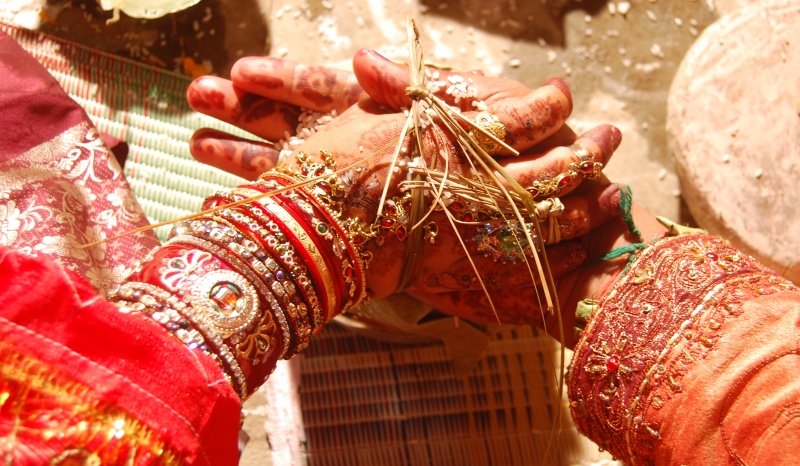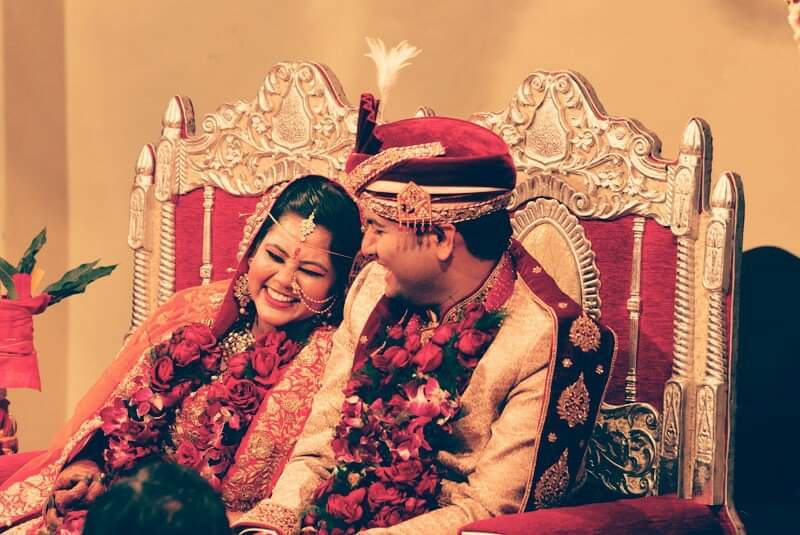Indians and marriages are an unbreakable pair. Even today, the most liberal and “modern” parents are unable to live in peace until their children get married and “settle down”. For an adult to settle down, according to Indian parents, they need to get married, and subsequently, have children. No matter how qualified, financially stable and successful one is, they are not considered adults until one is married off. That would explain why Indian parents are so averse to the concept of premarital sex, but as soon as their children are married, they pressurize them to fulfill their dreams of becoming grandparents.
My 28-year-old cousin has a successful job, lives by herself in one of Mumbai’s posh localities and earns enough money to live comfortably, and to ensure her parents’ financial security. While her parents are extremely proud of her and never leave a single opportunity to gush about her successful professional life to anyone willing to lend a patient ear; they constantly worry themselves sick because they still haven’t found a suitable groom for her. In spite of her being an independent woman who is perfectly capable of looking after herself, her parents feel like they have failed her because she’s 28 and still unmarried. I have heard my aunt complain about her blood sugar levels rising up because she spends all her time trying to convince my cousin to marry some bloke she’s found on a matrimonial website.
Suggested read: The Curious Case Of Arranged Marriages
Speaking of matrimonial websites, today they have successfully replaced the middle man in the Indian marriage market and offer a space for prospective brides, grooms and their families where they can choose partners from a wide array of online profiles. The baffling irony here is that while Indian parents are constantly warning us about talking to strangers and reprimanding their daughters for talking to boys they don’t know too well; they have no qualms about marrying their children off to someone they found on the internet. It is downright hypocritical that Indian parents are okay with making important decisions regarding their children’s life based on an online profile, yet many of them still are unable to wrap their heads around the concept of love marriages. Moreover, there are countless instances of men who simply want to flirt, and thus have created profiles; and individuals who have been forced by their parents to join and have no intention of marrying. However, keeping aside the abundance of catfishing, and hypocrisy of Indian parents, matrimonial websites have been able to strike a balance between choice and traditions. The 1500-odd matchmaking sites currently functioning in India have facilitated modern marriages where individuals can choose who they want to marry, while also satisfying their parents and family traditions.
According to data released in 2018 by the National Family Health Survey of India, only 14% of unmarried men and 2.4% of unmarried women have engaged in premarital sex. This is partly due to the fact that premarital sex is still looked down upon as a taboo in India. Sex and sexuality are topics that are actively avoided in all family conversations, and the slightest hint at one is shushed down by conservative Indian parents. Children’s questions regarding these topics remain unanswered, which often leads them in search of these answers to unreliable sources.
Women, especially, are taught to curb all of their sexual desires; they are told that sex is sinful and that a woman’s virginity is the only true sign of her good character and upbringing. They are told to behave in a way that reinforces their oppressed position in society. A girl grows up to the taunts of her mother and relatives telling her to dress appropriately, to not stay out late, to not mix with the opposite gender. It is these same relatives and family members who force her to get married the moment she “comes of age”. We’re in the 21st century and yet an unmarried girl is looked down upon as a burden and a liability to her family.
We teach our girls the virtues of chastity, we forbid them from exploring their sexuality, we condemn them for trying to express their sexual desires in a healthy manner. However, the first step after marriage in India is the consummation of the marriage. This creates confusion between the individuals who were thus far taught that sex is a sin. Suddenly, sex is what will make them an ideal married couple. This reflects the double standards of the Indian society.
Suggested read: 10 Most Common Myths About Marriage And Why You Shouldn’t Give In To Them
The situation is worse in arranged marriages where one is expected to have sex with someone they barely know just because they are now a married couple. Assuming that neither has engaged in sexual activities prior to their marriage, there exists an undue pressure on two sexually inexperienced individuals to fulfill their destiny as married couple, i.e. reproduction.
Lack of comprehensive sexual education, previous sexual experiences and ignorance of the concept of consent can prevent married couples from having a healthy sexual relationship and lead to several issues.
The goal of any marriage, especially of marriages in India is reproduction. First, parents force their children to get married because that is what makes them respectable members of society. Then, almost immediately newly married couples are expected to bear children, so that they can continue the family lineage. They are barely given the time to get to know each other or get accustomed to a married life before being plunged straight into parenthood. Of course, the concept of someone not wanting to have children after getting married is still an alien one. Even grandparents and older relatives force newly wed couples into having babies immediately by using emotional pressure; the classic “I want to see my grandchild’s children before I die” being a common line of argument and coercion. Moreover, marriage also functions as a free pass to sex, and many take advantage of this social institution to fulfill sexual urges in an inappropriate and unhealthy manner. Cases of marital rape and domestic violence in India are unnumbered and continue to remain unheeded to. Even today, it is next to impossible for an individual to seek justice against marital rape. Unplanned pregnancies also become more socially acceptable when it is caused in a married woman, since it then becomes a “private matter” between the husband and wife. However, awareness regarding birth control and contraception still remains inaccessible to a huge chunk of the Indian population. In certain cases, it is even frowned upon for a married woman to take birth control since she is depriving her family of what they desire the most- babies. (Specifically, the ones born with a penis.)
Suggested read: I Want A Divorce: Top 5 Reasons We See Failing Marriages All Around And What You Can Do
As a result, there exists a large number of parents who are quite inept at being good at raisin their children. Stories of emotionally unavailable parents are heard aplenty; leading to shaky parent- child relationships and a generation of kids who are lonely and confused. Of course, there are individuals who have eased themselves into the roles of a responsible parent and sacrificed a lot for the upbringing of their children. However, even then, these children do not turn out to be any better than their parents. They too grow up with misinformed views about sex, marriage, family and the way the society functions. They too are coerced by parents and grandparents to get married, start a family and give in to every possible societal expectation. It is a vicious cycle of the patriarchal, heteronormative, gender biased and stereotyped family system that continues to be propagated.
It is high time now that marriages in India undergo a transformation. Marriage is not necessarily always a social duty that must be fulfilled within an appropriate age. Reproduction is not its sole purpose. Neither should it be viewed as a parameter for determining one’s social position. It is, definitely, not a license to have non- consensual sex and get away with it. Heterosexual marriage is not the only basis for the formation of the family unit either. Marriage is a bond based on mutual trust, understanding and love. Whether it is an arranged or love marriage, both individuals are equally responsible for the proper functioning of this relationship; their relatives or other family members are not. It requires commitment, sacrifice and a great deal of adjustment on the part of both individuals. Hence, forcing two individuals who are unwilling or unprepared to perform these functions will inevitably lead to an unhappy and problematic marriage. Instead, we need to realize that an individual who does not wish to marry or bear children or break out of an existing marriage that isn’t working out is as deserving of societal respect as anyone else. We need to realize that a marriage is not the sole marker of someone’s success as a human being; neither is it their destiny. It is a choice, and one that should be taken only by the two individuals involved, without being under the stress of living up to familial or societal norms and tradition.
Featured image source: Google, copyright-free image under Creative Commons License












